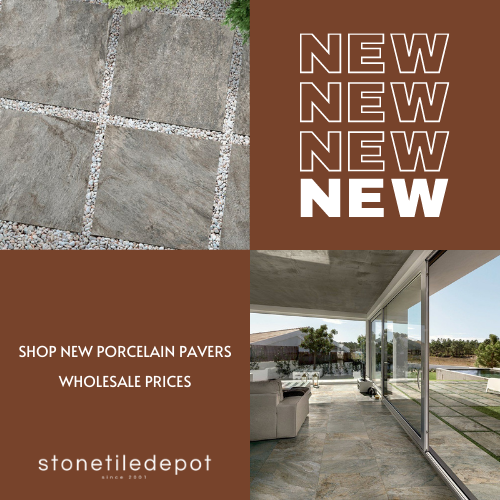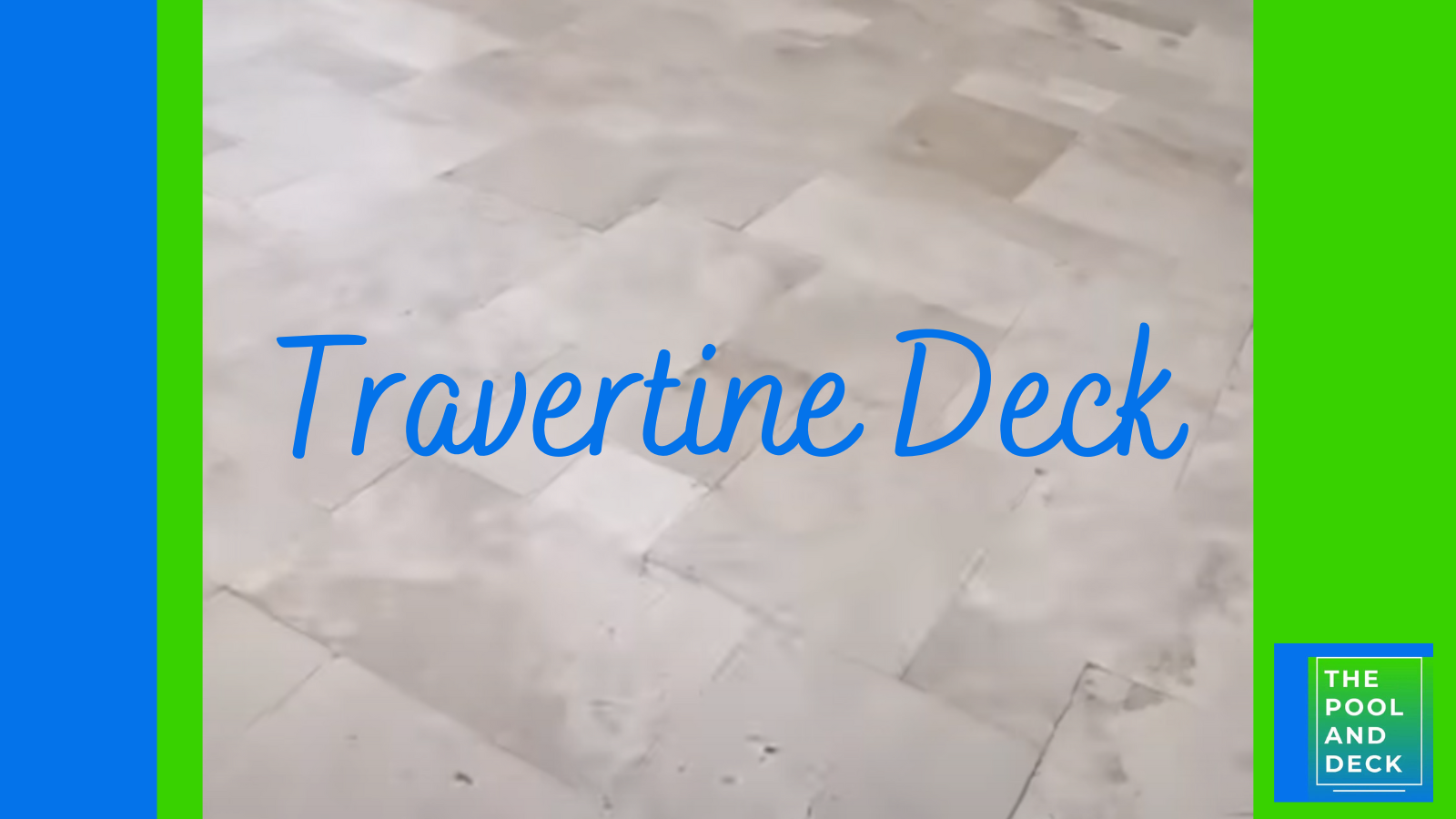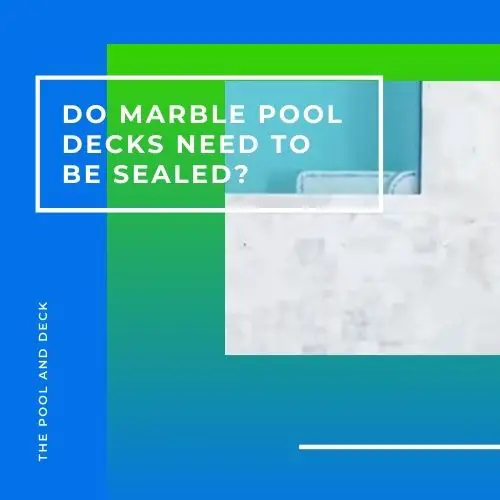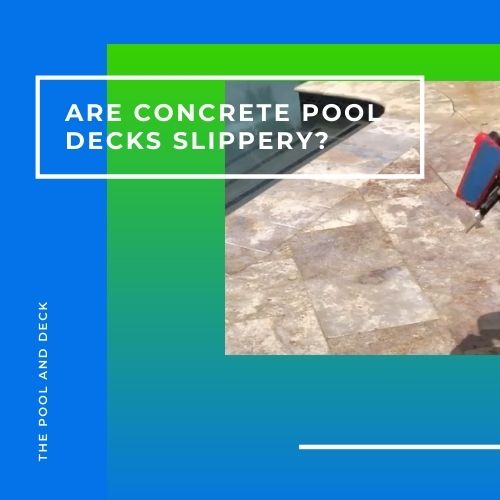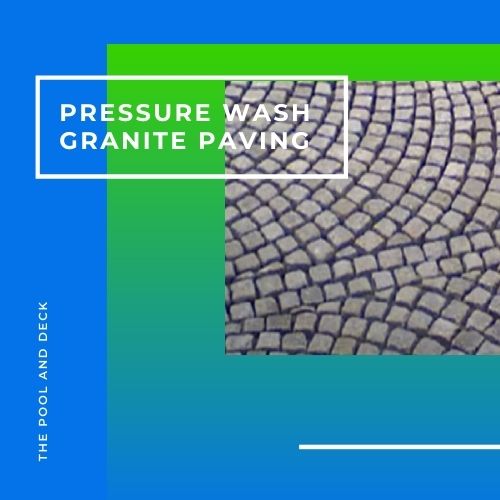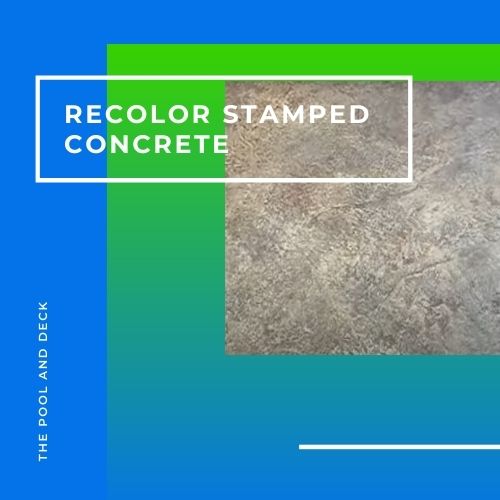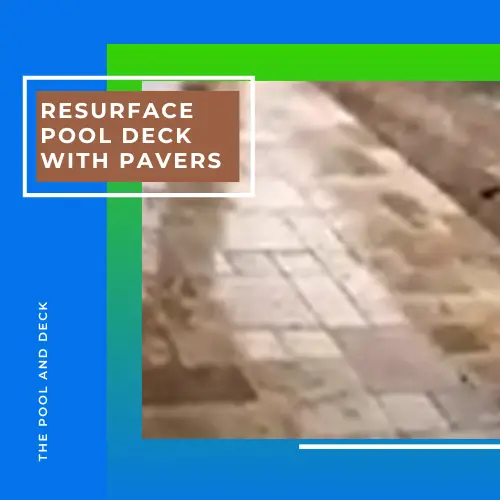Do Travertine Pavers Need to Be Sealed? (Is It Helpful?)
As an Amazon Associate, I earn from qualifying purchases.
Table of Contents
Do Travertine Pavers Need to Be Sealed?
I guess you have made up your mind to build a new pool deck or resurface the old one. Natural stone pavers are a great option. Travertine looks gorgeous around a pool and is quite functional too! It is less slippery and gets less hot in the summer stone than other stone or concrete pavers. But do travertine pavers need to be sealed?
Travertine is a fairly porous natural stone. Travertine pavers need to be sealed to increase their durability, stain & chemical resistance and to enhance their beauty. Sealers can make travertine pavers slippery, so make sure to choose the right sealer.
Travertine is possibly the most popular natural stone paver when it comes to pool decks and coping. Limestone, Granite and Marble are the other common stone pavers used around pools.
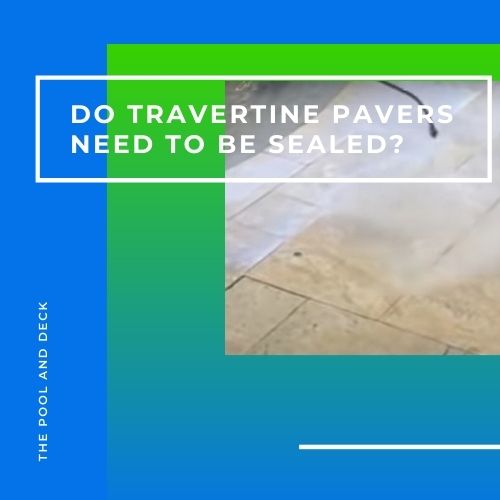
4 Popular Stone Pavers
While all four are natural stones, they differ from each other. Each went through a different geological process, under the crust of the earth, eons ago. Geologists classify most of the rocks as sedimentary, metamorphic or igneous.
- Limestone is a sedimentary rock and is mostly composed of calcite from biological activity. Limestone was formed when the shells of marine organisms deposited on the ocean floor and compressed by layers above.
- Travertine is also a sedimentary rock and is mostly composed of calcite from volcanic activity. Travertine was formed when rivers rich in minerals or hot springs evaporated and the residue was compacted by layers of earth above it.
- Marble is a metamorphic rock and is mostly composed of calcite. Marble started off as limestone. Limestone buried deep into the earth, changed from a sedimentary rock to a metamorphic rock under severe heat & pressure, to become marble.
- Granite is an igneous rock and is mostly composed of silica (quartz) and alumina. In composition it is different from the three above. Granite was formed when hot molten magma within the earth’s crust cooled and solidified.
Rocks.CompareNature describes travertine as “highly porous” and limestone as “less porous” when comparing the porosity of the two. Travertine, Limestone and Marble have a hardness reading of 3-4 on Mohs scale when compared to 6-7 for Granite. Out of the four, Travertine also has the lowest compressive strength.
You can block the pores and improve the weather resistance of travertine pavers by sealing them.
What Happens If You Don’t Seal Travertine?
Travertine pavers that are not sealed are likely to
Get Stains That Are Permanent
Travertine is the most porous of the natural stone pavers generally used on pool decks. Porosity of travertine is a double edged sword.
Porosity ensures that water from the wet soles of your feet are readily absorbed by travertine pavers. No water film between feet and paver means no “hydroplaning” and no slippage.
Unfortunately, an unsealed travertine paver will also absorb spilled red wine or BBQ sauce with equal ease, leaving a stain mark.
Since the stain penetrates the stone, it is near impossible to get it out!
Fade & Get Sun Bleached
Travertine pavers used on pool decks are generally light pastel colors. But warm colors such as gold, burnt sienna, leaf brown and walnut are also often used to contrast with the aquamarine blue of the pool. This color combination creates a mediterranean vibe.
However, if the travertine pavers are not sealed, the bright earth colors will fade rapidly leaving your pool looking sun bleached. Not the look you paid for!
Get Scratched By Deck Furniture
Travertine pavers are hard & tough but not as hard & tough as granite pavers. Bare feet will not cause any harm to the pavers. But movement of deck furniture (chairs, recliners, umbrellas) and pool equipment (vacuum cleaners, pumps) certainly will leave a few scratches.
Travertine pavers that have been sealed will be better protected!
The end result is that travertine pavers that have not been sealed will lose their charm & beauty a lot faster than you would like.
On the flip side sealing travertine paver makes them more slippery. However, sealed travertine pavers can be made less slippery by:
- Using penetrating sealers and not topical sealers
- Adding non-slip additive to topical sealers
What Do You Seal Travertine With?
There are three types of sealers that can be used on natural stone pavers such as travertine.
Enhancing Stone Sealers:
Enhancing Stone Sealers penetrate and bring out the natural vibrant colors locked within travertine. Enhancing sealers also protect travertine pavers from staining and acid discoloration. Refresh your older travertine pavers by applying a coat or two of enhancing sealer.
Recommended Product: Black Diamond Color Enhancer Sealer for Travertine Pavers.
Impregnating Stone Sealers:
Impregnating Stone Sealers are purely functional. Like enhancing sealers, they penetrate into the pores of the travertine paver, solidify and block them. Water, stains or harmful chemicals can not enter the pores.
Impregnating or Penetrating sealers protect the travertine pavers without altering their natural texture & appearance.
It is ideal for new travertine pavers for the pool coping and near the pool. The slip resistant property of the travertine paver is retained. Penetrating sealers will be stain resistant to a degree as the stain will not be able to penetrate the pores (already blocked by the sealer).
I recommend Miracle Sealants 511QT6 511 Impregnator Sealer. It is very effective at protecting against water, stains & slippage.
Topical Stone Sealers:
Topical Stone Sealers penetrate a bit, but mostly form a glossy or egg-shell, protective film on the travertine surface. They impart a rich lustrous look to the travertine paver and will make it stain resistant.
For a wet look I recommend Foundation Armor AR350 Solvent Based Acrylic Wet Look Concrete Sealer. However, topical sealers smoothen out the texture of the travertine making it slippery.
If you expect the sealed area to be wet most of the time, then better add a non-slip additive to the sealer. There are several popular brands such as SureCrete’s SureGrip, H&C SharkGrip or Matcrete’s Rhino Grip.
How Do You Seal Travertine Pavers?
You should apply the penetrating sealer a few days after installing the travertine pavers. Penetrating sealer will last around 10 years as it penetrates into the travertine pores. Apply at least two coats with a pump sprayer.
When recoating an existing travertine pool deck, apply a couple of coats of color enhancing penetrating sealer. This will not only block any open pores but also bring your dull pool deck back to life.
Topical sealers will typically last 5 years indoors and 3 years outdoors. Topical sealers get abraded by the foot traffic on it. Topical sealers are required to protect the travertine pavers from stains, wear & tear and fading due to exposure to sunlight.
So make sure to apply fresh coats every two to three years or whenever you notice that the pavers have got scratch marks.
Existing pool deck should be cleaned with a high pressure washer. Use bleach or diluted muriatic acid and a hard bristled brush to get rid of stains. Give a final rinse and let the deck dry.
The sand between the pavers must be topped up before sealing. You must use polymeric sand, such as Alliance Gator Maxx G2 Intelligent Polymeric Sand for Paver and Natural Stone, rather than regular sand.
Choose a warm day to apply the sealer. Make sure that the surface is dry before application. Apply the sealer over a 50-60 square feet area using the backpack pump sprayer. Then use a nap roller to back roll the sealer while still wet.
Apply the second coat in the same way but only after the first coat is touch dry.
Thank you very much for reading the post. I do hope you found it informative and helpful.

